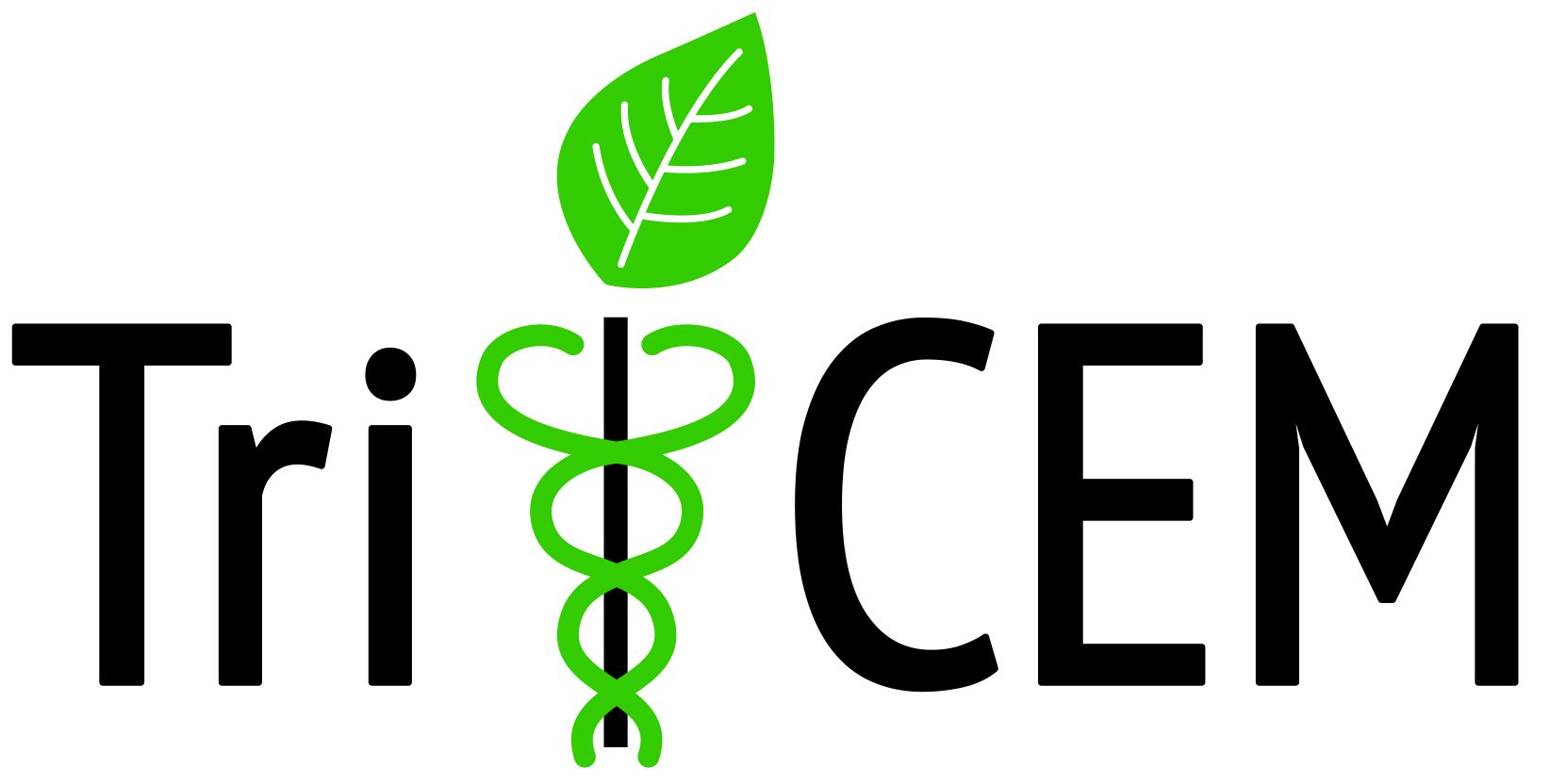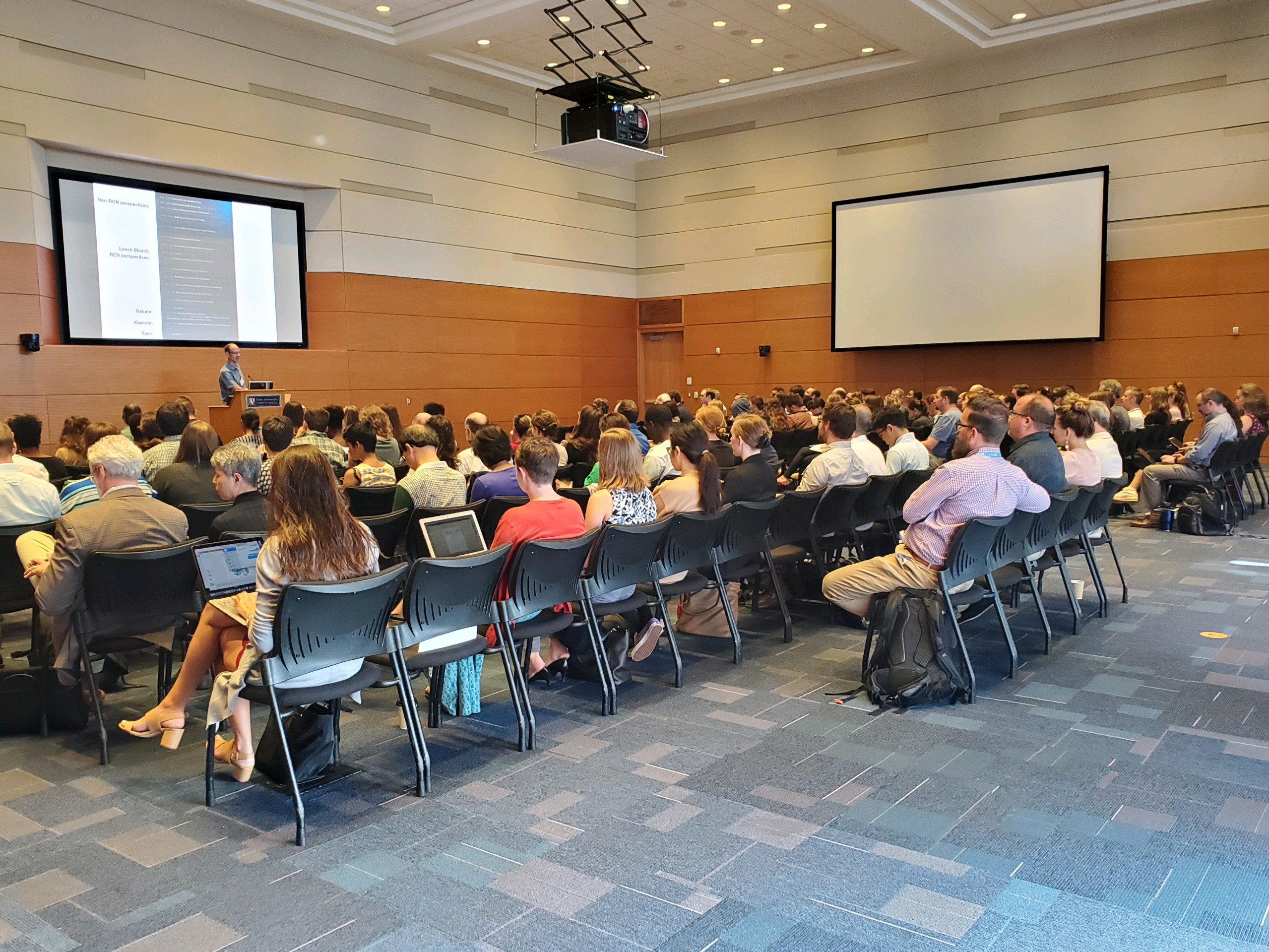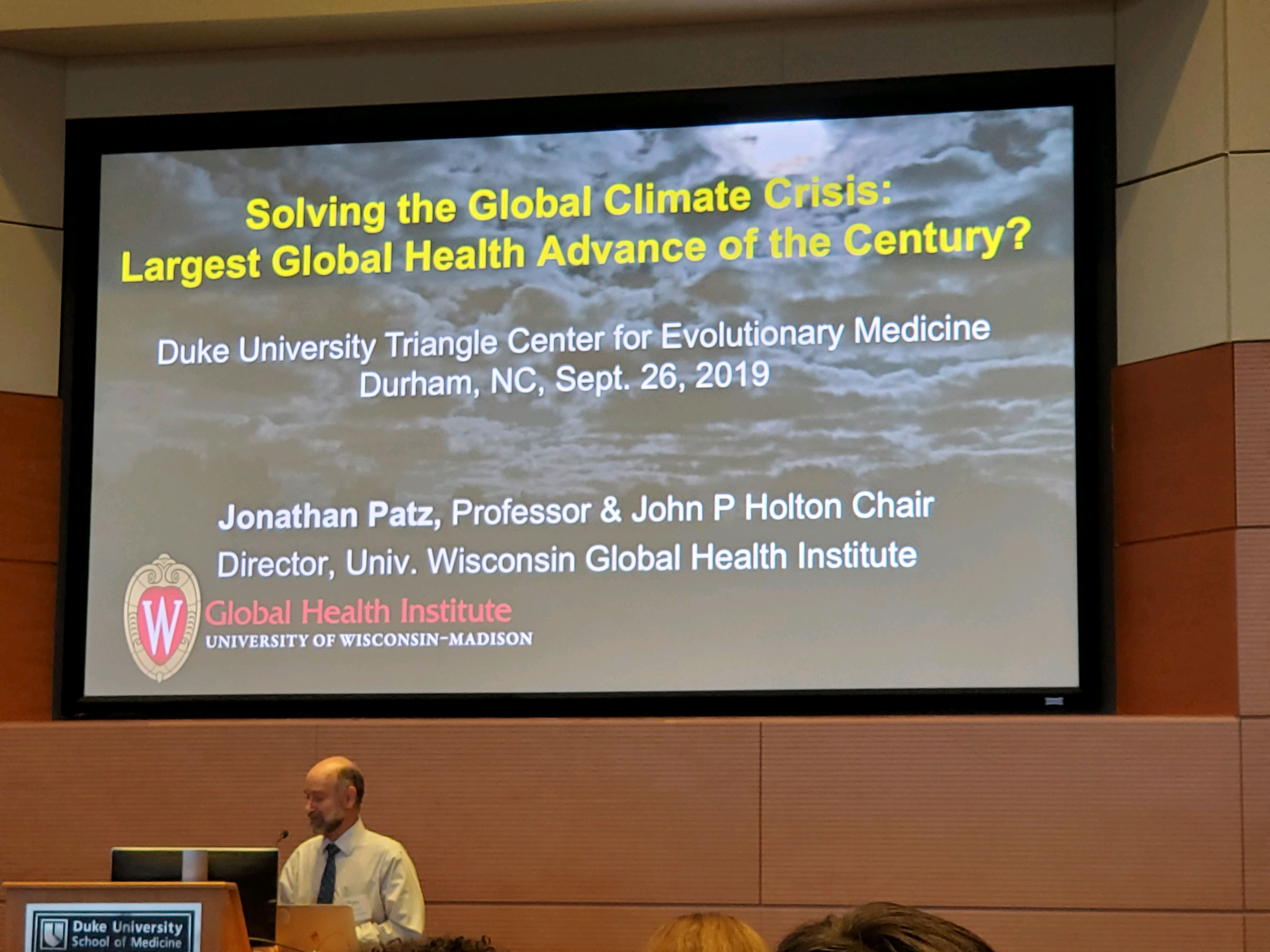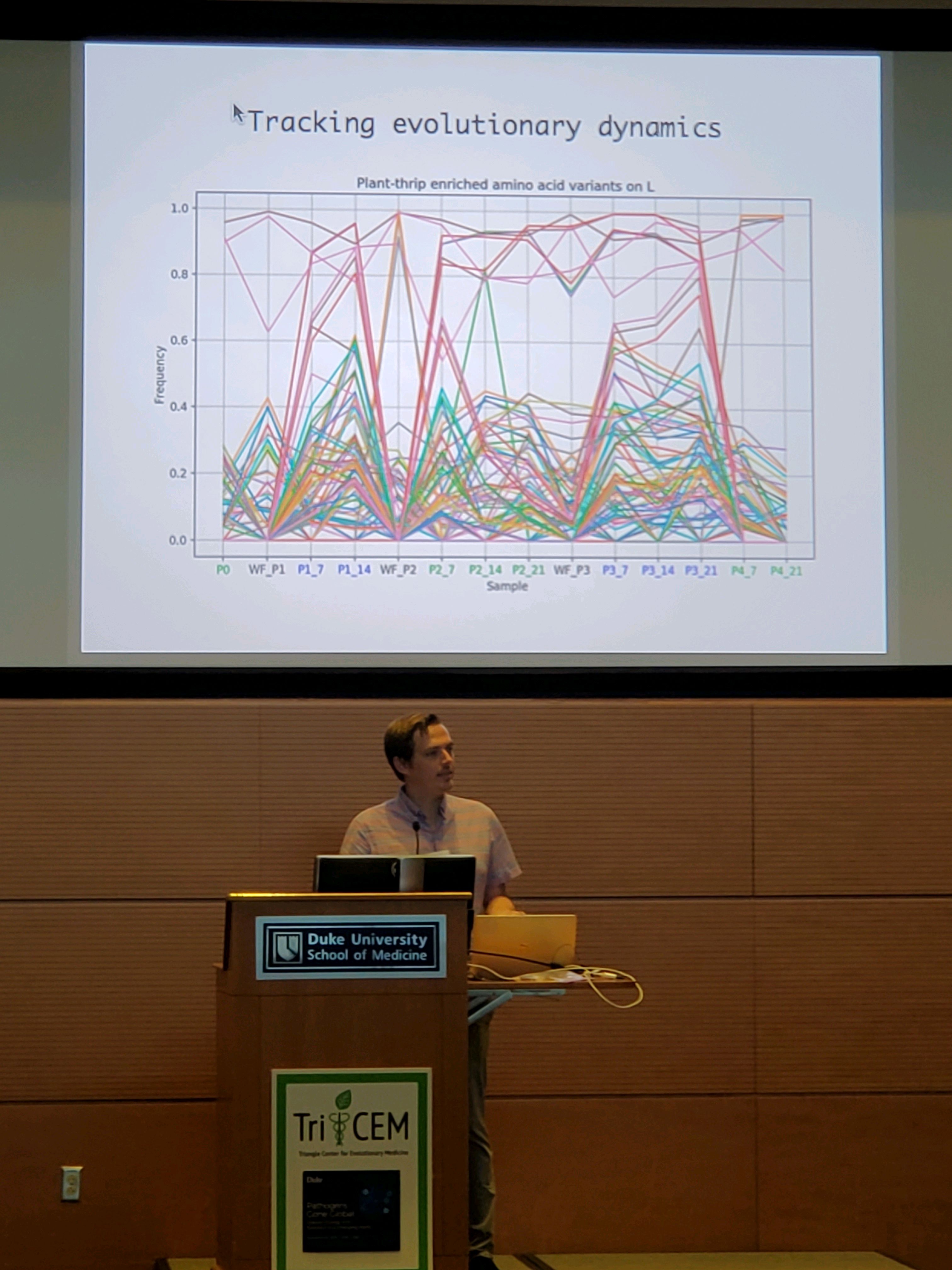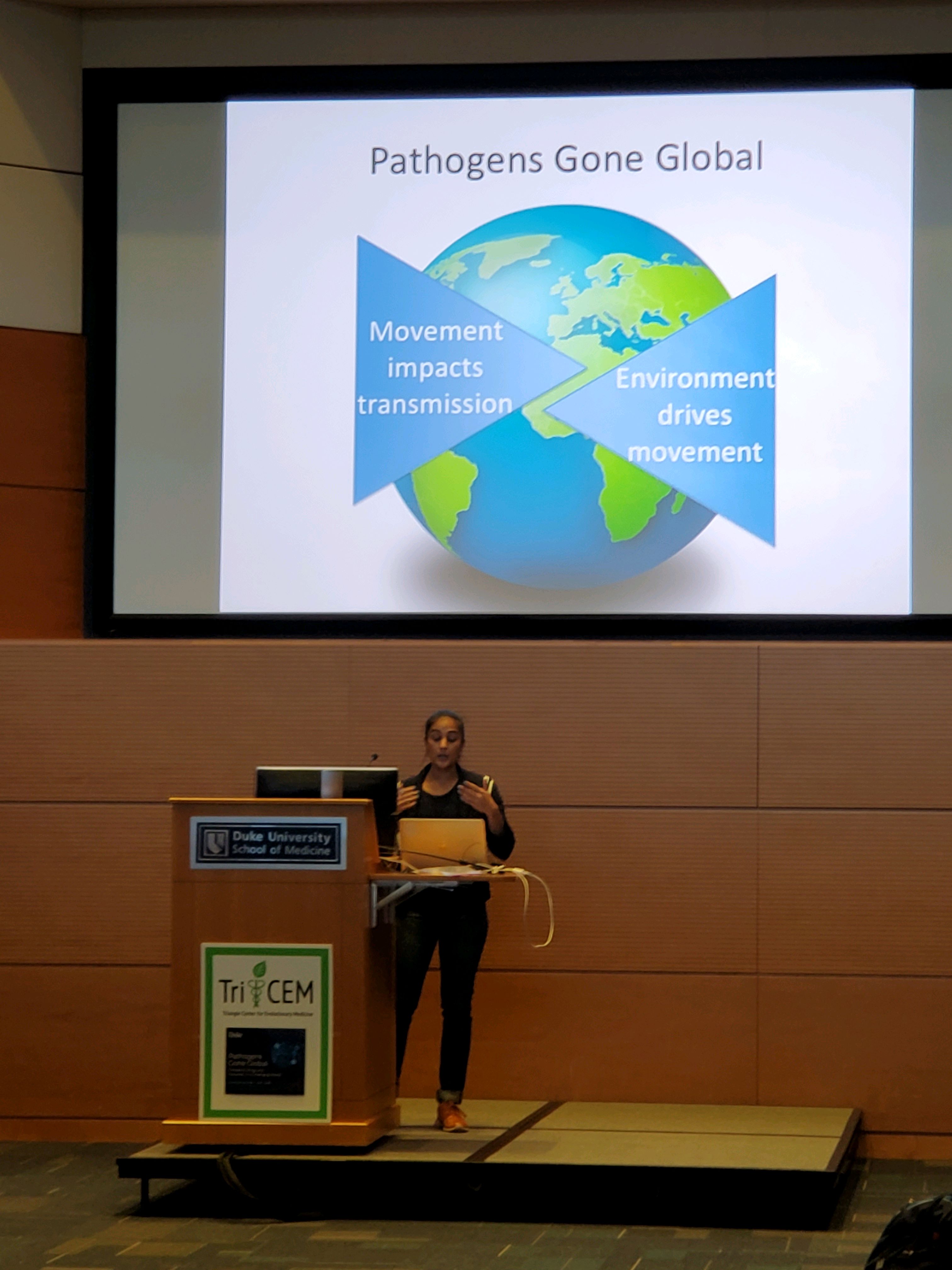Pathogens Gone Global was an absolute success and the team from the Triangle Center for Evolutionary Medicine would like to thank the organizers, collaborators, speakers and all those who participated in making the symposium a day to remember. Over 150 participants attended talks ranging from the impact of climate change, human movement, extinctions and more on disease emergence and pathogen evolution. Engaging scientists presented innovative frameworks and statistical models that could be applied to study the ever-evolving field of infectious disease. The diverse set of speakers and participants facilitated discourses that involved forward looking proposals, pioneering policy, advanced research methodology and future directions for the study of infectious disease transmission and prevention. The symposium reached a crescendo during an invigorating debate about approaches to pandemic preparedness with sides arguing whether to invest our resources in focusing on predicting where the next outbreak may occur (predict), or to focus on surveillance and containment (surveillance). Dr. Sonia Altizer of the University of Georgia defended Predict, and Dr. Sébastien Calvignac-Spencer took up the case for Surveillance, which was polled to be the favored side by the audience both before and after the debate. However, the one thing that was evident was best summed up by one audience member, “We have to do both.” Dr. Jonathan Patz delivered the keynote where he implored scientist to incorporate a One Health perspective on the study infectious disease and to recognize the potential global health advances that can be made by solving the global climate crisis.
TriCEM’s mission is to promote innovative developments in the theory and practice of evolutionary medicine and ecology in the Triangle, and Pathogens Gone Global has facilitated the expansion of our academic network beyond the northeast corner of North Carolina. We thank the out of state and national attendees and speakers from the University of Wisconsin, the University of Florida, Penn State University, the University of Georgia, Louisiana State University, the University of Toronto, the Robert Koch Institute, and Virginia Tech for their participation and engagement with TriCEM. We hope that the global collaboration and discourse does not end with the symposium as disease ecologists are expected to adapt and evolve to meet the needs of a changing world.
